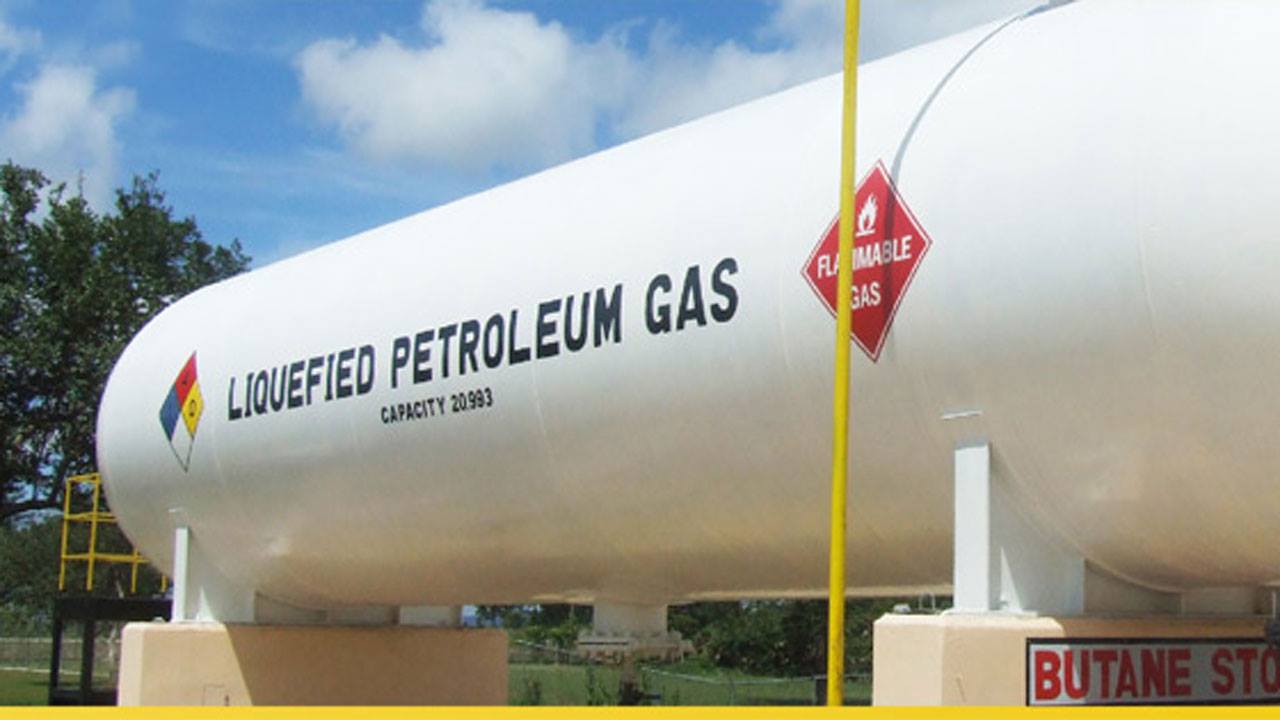April recorded the highest volumes of LPG (otherwise called cooking gas) imported into the country at 59.89 million litres.Also, 55.37 million litres was imported in May, while in June the figure stood at 50.45 million litres in Q2. March recorded the highest volume of LPG imported into the country in the first quarter at 39.47 million litres. Same volume of 33.83 million litres was imported in January and February in the first quarter.Available data show that the statewide distribution of truck-out volume for the second quarter showed that 105.49 million litres of LPG was distributed nationwide.
Alas, Nigeria possesses the largest natural gas reserves in the continent. Although the country is ranked ninth in proven gas reserve with an estimated 192 trillion cubic feet, Nigeria, however, is ranked the 28th gas producer in the world.Unfortunately, rising prices of the product had also continued to hit consumers. For instance, the NBS revealed that the average price for the refilling of a 5kg cylinder for LPG increased by 2.17 percent month-on-month and 3.19 percent year-on-year to N2,054.14 in August 2018 from N2,010.45 in July 2018.
States with the highest average price for the refilling of a 5kg cylinder for LPG were Bauchi (N2,490.00), Borno (N2,400.00) and Gombe (N2,354.55).
Similarly, average price for the refilling of a 12.5kg cylinder for the product increased by 2.88 percent month-on-month and eight percent year-on-year to N4,366.48 in August 2018 from N4,244.35 in July 2018.
Nigerian consumers have continued to groan as the product aims for the roofs amid the country’s huge reserves. Also, investors in the business are also decrying the diminishing business opportunities in the LPG space.
Some members of the National Association of Liquefied Petroleum Gas Marketers (NALPGAM) and Liquefied Petroleum Gas Retailers, a branch of Nigeria Union of Petroleum and Natural Gas Workers (NUPENG), have also expressed worry over the state of the industry, which they described as bothersome.They maintained that the supply chain of the product was troubled; hence, the shoot up in prices, saying there is the need for the country to get the planning and strategy segment of the market right as well as its infrastructural base.
How far can interventions go?
Hinged on the Federal Government’s resolve to increase local consumption of LPG in the country, Petroleum Products Marketing Company (PPMC), a subsidiary of the Nigerian National Petroleum Corporation (NNPC) recently announced plans by the government to remove the existing value added tax (VAT) on LPG sourced locally.
Talks were said to be ongoing with Nigeria LNG Limited (NLNG), Federal Inland Revenue Service (FIRS) and the NNPC on the challenges faced by marketers concerning VAT on Nigeria LPG as against the imported one.The PPMC also assured that it was not only committed to ensuring the steady supply of LPG, but also to stabilise the domestic price of the product in spite of the general increase in price of petroleum products worldwide.
In July this year, the NLNG) said it was planning to reinforce the domestic LPG market with a new LPG vessel which will boost volume and availability, as well as consolidate the company’s contributions to deepen the domestic LPG industry and increase consumption of the clean gas. The new LPG vessel is to be built by E.A Temile and Sons Company Limited, a wholly Nigerian company, under a contract with Hyundai Mipo Dockyard, South Korea and chartered to NLNG. The Managing Director and Chief Executive Officer of NLNG, Tony Attah, had said the move will further help develop the domestic LPG market and promote the growth of indigenous companies and Nigeria’s economy.
The NLNG remains the single largest supplier of LPG (over 50 percent) in Nigeria and looks to enable its expansion in future.However, despite these two major measures, the plight of the average consumer of the product as well as investors in the business, has continued to worsen, and it is feared that the prevailing challenges could recede already made progress in the sector.
Currently, owing to Federal Government’s concession on imported LPG, importers do not pay VAT as compared to what is obtainable when the product is purchased locally. This, therefore, is said to be negatively impacting the buying cost of LPG locally.
The situation might get worse
Stakeholders have expressed worry over the possibility of having more Nigerians return to alternative unclean energy sources like firewood and other dirty fuels, given the prevailing circumstance.The Executive Secretary, NALPGAM, Bassey Essien, said though the country locally produced LPG, it was very unfortunate that the prices of the locally sourced product and the imported counterparts, were determined by global pricing template tied to the prevailing exchange rates.





